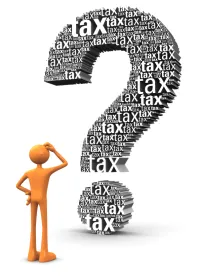A recent Illinois appellate court decision should remind government entities that charging a fee for a FOIA request should not be assessed without due care. In Sage Information Services v. Suhr, 2014 IL App (2d) 130708, the plaintiffs requested "a copy, on CD or similar electronic media, of the current real property assessment record file for the entire county, together with an electronic copy of the sales file" from the Supervisor of Assessments.
The requestor asserted that under section 6(a) of the FOIA, the defendant could charge no more than the cost of the disc. However, the defendant responded that the plaintiff would have to pay $6,290.45 (five cents per parcel) to obtain the records, relying on section 9-20 of the Property Tax Code.
The parties disagreed on which statute governs how much the defendant should charge for electronic records. Defendant asserted that the governing statute was section 9-20 of the Property Tax Code, which provides that, "In all counties, all property record cards maintained by...the chief county assessment officer shall be public records.... Upon request and payment of such reasonable fee established by the custodian, a copy or printout shall be provided to any person." 35 ILCS 200/9-20. The plaintiff contends the governing statute is section 6(a) of the FOIA, which provides, "When a person requests a copy of a record maintained in an electronic format, the public body shall furnish it in the electronic format specified by the requester, if feasible.... A public body may charge the requester for the actual cost of purchasing the recording medium, whether disc, diskette, tape, or other medium... Except to the extent that the General Assembly expressly provides, statutory fees applicable to copies of public records when furnished in a paper format shall not be applicable to those records furnished in an electronic format." 5 ILCS 140/6(a).
The Second District relied heavily on the Fifth District's opinion in Sage Information Services v. Humm, 2012 IL App (5th) 110580, which was the first to decide this issue. The court noted the 2010 Amendment to section 6(a) changed the language to distinguish between paper records and electronic records. Section 6(b) of the FOIA allows an agency to rely on another statute to charge more than the cost of production if it is a request for paper documents. However, if the request is for electronic documents, as it was in this case, section 6(a) governs. The amendment narrowed the exception to the cost-only rule. Therefore, if a government entity wants to charge more than the actual cost, another statute must expressly provide that the assessor may charge fees "applicable to copies of public records when furnished in a paper format."
The Tax Code does not contain express language that allowed the defendant to escape the cost-only rule. The court found the amendment to section 6(a) to be unambiguous and inescapably applied to the case at-hand. Therefore, the court held the defendant could not charge more than the cost of purchasing the record medium for the requested electronic documents.
When a request demands records in an electronic format, the FOIA officer should proceed with caution when assessing fees for the response. If the requested records are subject to a fee provision, other than the fee provision in the Freedom of Information Act, the FOIA officer must determine if the applicable language explicitly allows for recovery of more than the cost of actual production.



 />i
/>i
